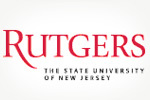The development of clean, renewable, and sustainable fuels is one of the Grand Challenges of the 21st Century. Growth in global energy consumption is placing increasing demands on all fuels/energy sources. Fossil fuel sources in particular are finite and dwindling and are also implicated in global climate change. Solutions to these issues must embrace not only innovative science and technology but also sustainable land use and sound economics, coupled with policies and infrastructures for implementation.
Toward this end, the Sustainable Fuels IGERT Project brings together over 40 faculty members, affiliated with over 15 different graduate programs and over a dozen Rutgers centers, whose collective research interests encompass four main research thrusts:
>>> Development and optimization of biofuels
>>> Innovative catalysts and engineering systems for synfuels
>>> Land use, sustainability, and environmental impact
>>> Fuels deployment logistics, economics, and policy
Among these research thrusts, IGERT Graduate Training Fellows (“Trainees”) can choose from more than a dozen specific topics upon which to develop a thesis research projects.
Each Trainee, while remaining grounded in his/her respective discipline and meeting all the requirements of his/her home graduate program, is also co advised by other Fuels IGERT faculty members, thereby ensuring that the research incorporates extra-disciplinary perspectives and considerations.
Fuels IGERT Trainees also participate together, across their respective disciplines, in integrated educational and professional training activities, such as a new fuels/energy graduate curriculum, an Energy Topics workshop, and annual IGERT Symposium.
Trainees obtain substantial real-world experience and a global perspective, including not only domestic internships in industry and government, but also international fact-finding field trips and research exchanges in China, Brazil, and South Africa.
Activities to promote greater diversity of students in science and engineering include outreach to public schools and local predominantly non-research colleges as well as collaborations with students and faculty at the University of Puerto Rico, Virginia Union University, and Delaware State University.
Synergistic activities with a second IGERT project at Rutgers, “Nanotechnology for Clean Energy,” enhance cross-disciplinary interactions across a broad spectrum of energy-related issues. « less
Project members' contributions to the library and showcase are listed here.






